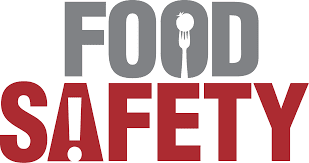Bankruptcy is a legal process through which a
person or business who is unable to repay debts to the creditors may seek
relief from their debts. The process of bankruptcy begins with a petition which
is commonly filed by the debtor or less commonly by the creditors. During the
bankruptcy process, assets of the debtor are measured and evaluated which are then
used to repay a portion of the outstanding debt. With the help of New York Bankruptcy Lawyers, you can clear your debts, set
up payment plans and protect your business from creditors.
Uses of Bankruptcy
Bankruptcy offers a person or a company an opportunity
to start fresh by forgiving debts that simply cannot be paid while providing
creditors an opportunity to acquire some repayment based on the business's or
the individuals' assets available for liquidation. Bankruptcy can theoretically
benefit an overall economy by offering people and companies a second chance to
obtain access to consumer credit and measures to repay their debts to the
creditors. Once the bankruptcy procedures are successfully completed, the
debtor is relieved of the debt commitments incurred prior to filing for
bankruptcy.
Basics of Bankruptcy
All bankruptcy cases are handled by federal
courts in the United States. Bankruptcy judges make decisions against federal
bankruptcy cases including whether a debtor should be discharged of his debts
or whether he is eligible to file a bankruptcy. Most often, an officer of the
Department of Justice is appointed by the United States Trustee to represent
the debtor's estate in the proceeding. Usually there is very little interaction
between the debtor and the judge unless a creditor makes any objection in the
case.
Types of Bankruptcy
Chapter 11
This sort of bankruptcy is the most complicated
and time-consuming, and is most frequently submitted by companies. If a company
has declared Chapter 11 bankruptcy, it will continue to operate, maintain
possession of all property, and attempt to develop a strategy to pay off its
creditors. It is essential to remember that Chapter 11 does not dismiss debt
commitments, but rather renegotiates, often leading in longer repayment
windows, smaller payments or reduced interest rates.
Chapter 7
Small companies and Sole proprietorships that
have no feasible future or lack substantial assets file Chapter 7. In this
case, all the properties of the business are sold to meet debts, and any debts
that cannot be covered by the purchase of assets are released. This is why
Chapter 7 is also frequently referred to as "liquidation." Chapter 7
also works on the assumption that the person /or the company do not have enough
revenue to repay their debts. It
is not possible to carry out further business operations once a company has
filed a Chapter 7, so the company is basically dissolved.
Chapter 13
A chapter 13 bankruptcy is typically reserved for
consumers although it can also be used for sole proprietorships. People submit
a repayment scheme to the bankruptcy court describing how they will repay the
debts. The sum that is required to repay relies on how much the person earns,
how much they owe and how much property they own.




